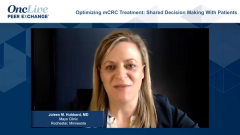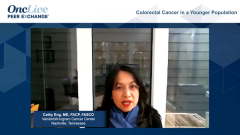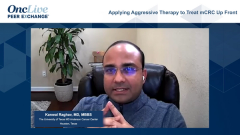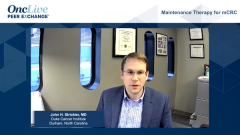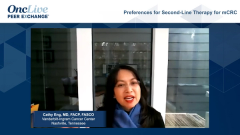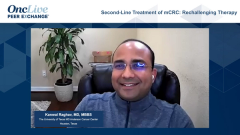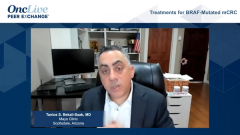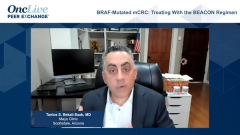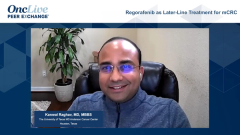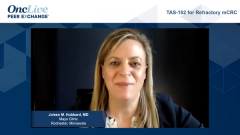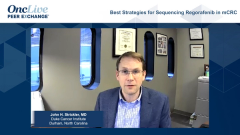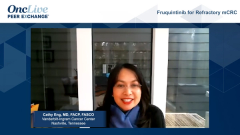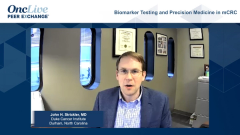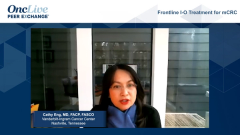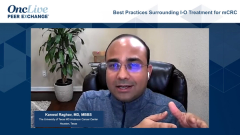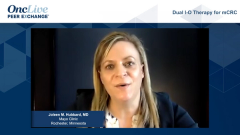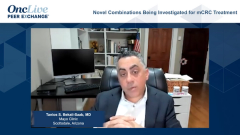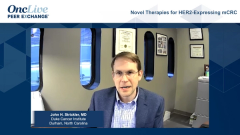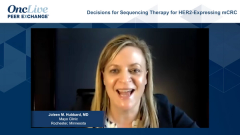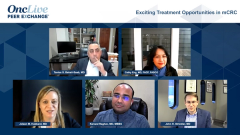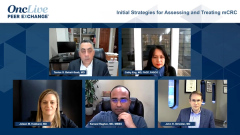
Optimizing mCRC Treatment: Decision-Making With Patients
An overview of topics that oncologists should counsel patients on when working with them to select therapy to treat metastatic colon cancer.
Episodes in this series

Tanjos S. Bekaii-Saab, MD: When you’re sitting with a patient, and we have moved more toward the shared decision-making, what things get discussed with the patient to help them make the right decision as you’re navigating them through the treatment options?
Joleen M. Hubbard, MD: It’s always a risk-vs-benefit discussion. With FOLFOXIRI [5-fluorouracil, leucovorin, oxaliplatin, irinotecan]–bevacizumab] for first line, it’s hard to argue with 2 randomized phase 3 trials showing a 4-month overall survival benefit. If it’s purely the palliative situation, we don’t need conversion, and we have a patient who says they’re concerned about adverse effects and would rather have fewer adverse effects and more interaction with family or at their job than having more adverse effects and potentially other outcomes. Those are things you always have to take into consideration. Each step of the way, we look at the risks and the benefits. When we get into second-line therapy, usually patients are still feeling good, and you can get a doublet cytotoxic and biologic in. When we start to get to third- and fourth-line therapy, that’s when we need to take a deep breath and ask, “Is this worth to continue going forward for minimal response and a small amount of survival benefit for some patients, but definitely with some toxicities?” In addition, asking what their goal is in the time they have. Each patient is different. Some patients want to try everything and push, and some opt for more comfort and quality of life. It’s all how they want to spend their time.
Tanjos S. Bekaii-Saab, MD: Every line of treatment, with every visit, you’re having that discussion with the patient.
Joleen M. Hubbard, MD: Correct.
Tanjos S. Bekaii-Saab, MD: John, do you want to add anything to that?
John Strickler, MD: It’s important to sit down with your patient on day 1 and then continue to have discussions about what’s important to that person, what they value, and what they want to be doing with their time. You must understand that, unfortunately, in most cases, we can’t cure patients with metastatic disease. We are looking to give people as great a quality of life as possible. In some cases, length of life is the primary consideration. In other cases, the primary consideration is minimizing the risk of needing to come in more frequently for IV [intravenous] fluids and minimizing toxicity related to treatments. Most preferences can change over time. We’re incorporating those discussions into our treatment decision-making. By doing that, we’re giving our patients the best care possible.
Transcript Edited for Clarity


